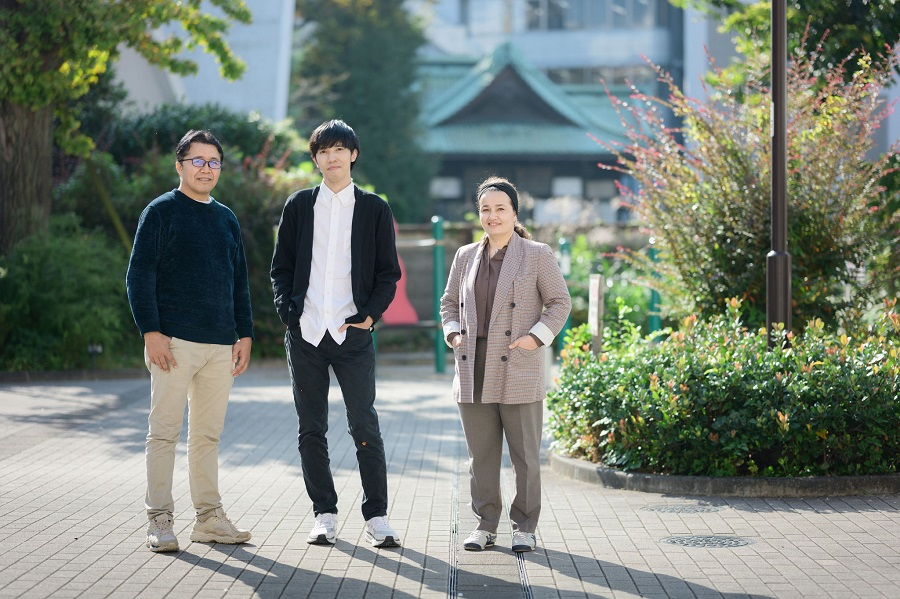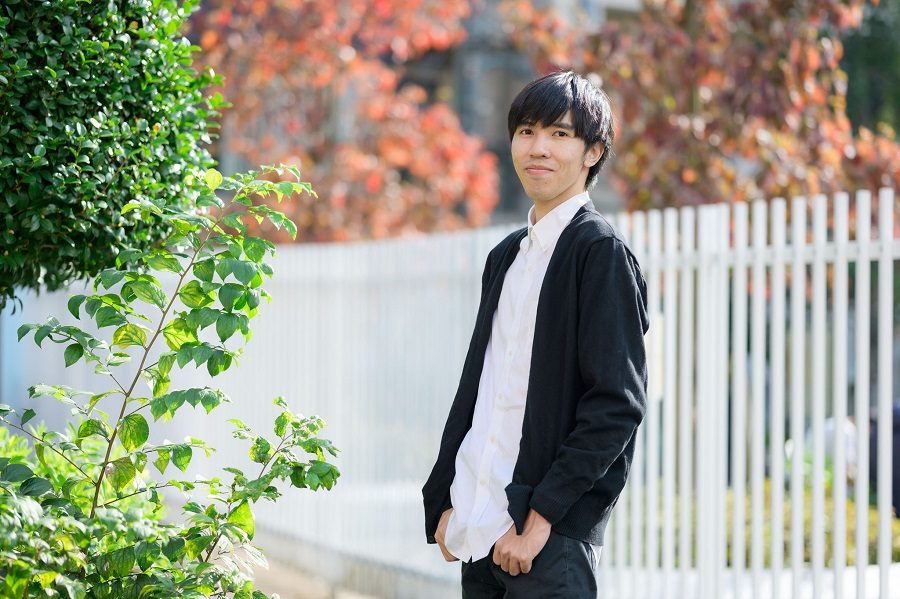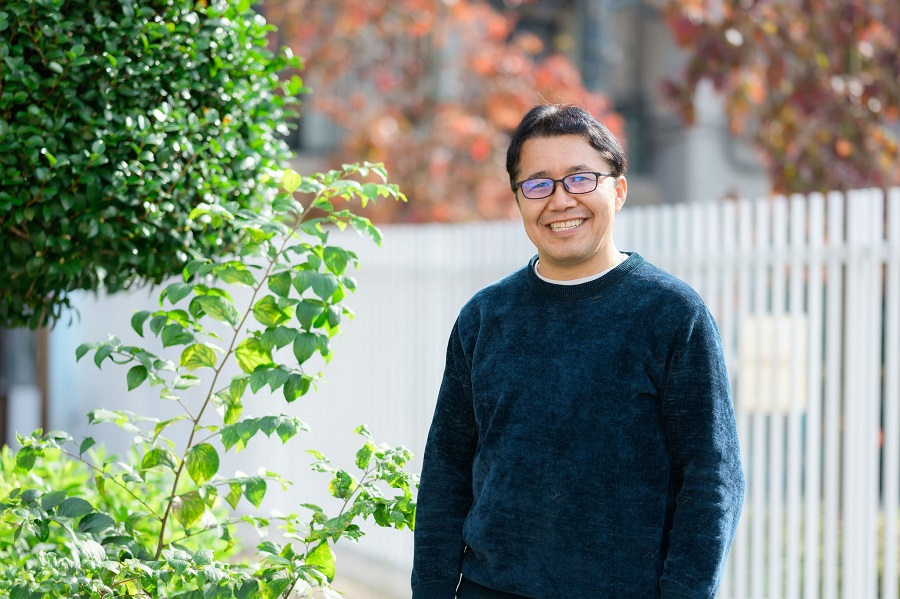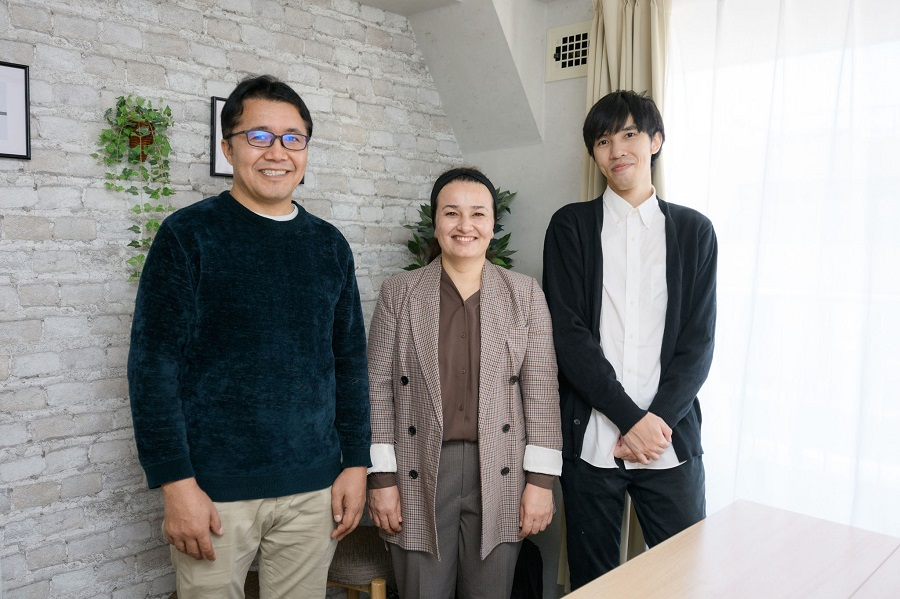Intercultural Crosstalk
Researchers From Abroad③ -About the Research Environment-

See their profiles here
Click for "1st Round" Here
Round 3: About the Research Environment
The research environment and school systems differ from country to country. What are the differences between Japan and your home country? We asked the participants to talk about the differences they have noticed in their research, and the good things about doing research in Japan.
Please Tell Us About The Differences In The Research Environment Between Japanese Universities And Universities In Your Home Country.

Japanese universities have lots of facilities and the necessary funds and equipment for research. There are also many companies that support research. It would be difficult to find such an environment in Afghanistan, so I think the environment in Japan is good.
Comparing the research environment, I think Japan is better. At my university, there is a graduate student room for graduate students. That's really good.
In Chinese universities, the master's course is three years long. In the field of the humanities, like mine, you can't choose your own research topic freely. You have to do the topic of your main supervisor, so Japan is better. Also, the things you can research are restricted, and the atmosphere is completely different. In China, the relationship of supervisor and student is like that of a company boss and employee, so you can't speak to them as equals. I think it's a vertical society.
The education systems in Tajikistan and Japan are completely different. In Tajikistan, elementary school is up to the 4th grade, and middle school is from the 5th to the 9th grade. The 10th and 11th grades are high school. University is four years, and master's degree is two years. In Japan, when you go from elementary school to middle school, you go to different schools, but in my country, you just stay in the same school. The way teachers teach is also different. In Japan, it is easier to understand.
In terms of universities, public universities are managed by the Ministry of Higher Education, while private universities are independent. On the other hand, public universities in Japan are not completely managed by the central government. I feel that Afghanistan is run by large organizations, whereas Japan is run by smaller organizations with their own research institutes and authority.
As Nabieva says, in urban areas, elementary schools and high schools are located in the same place, but in rural areas, unlike Japan, elementary schools are located in the local area, but junior high schools and high schools are located far away because there are no facilities. The university entrance system is also different from Japan. There is a general entrance exam called the Kankor test throughout the country. Therefore, those who pass the exam and have good grades can choose a university or major.
Chinese universities are seen as an extension of the group living you did in elementary and junior high school, so you live in a dormitory with four people in a room and follow a set schedule, so the university doesn't require you to be independent. When you leave university, you lack the independence to think about what you should do or how to do it. I feel that Japanese university students often live alone and are required to be independent. However, Chinese students are all very hardworking. On the other hand, I think Japanese university students should study a little more.
How Are Researchers Treated?

I think that salaries and other benefits for long-term employees are better in Japan.
Compared to Japan, I think salaries in Tajikistan are low. Of course, prices are also high in Japan.
Salaries in China are not that different between university teachers and office workers. Some researchers, including those who receive subsidies for PhD students, only receive around 2,000 yen a month. This is not enough to live on, so they need to rely on their parents' support. The top professors receive a salary, but it is not very high. Only around 10% of PhD students find jobs in academia. What happens to the other 90% of researchers is a problem. Overall, I think the conditions in Japan are better.
In Japan, some students enjoy university life while working part-time, but in China, students don't work part-time.
In Tajikistan, there is no such thing as part-time work, so students don't work part-time. It's completely different from Japan. Both tuition and living expenses are paid by their parents.
At Afghanistan's national universities, tuition fees for undergraduate courses are free, but master's and doctoral courses cost around 50,000 to 100,000 yen per semester. Private universities charge for both undergraduate and master's courses.
There are few opportunities for students to work part-time. In Japan, on the other hand, students can work part-time while studying at university at the same time.
There are also high school students working at my part-time job, but I thought it was an urban legend that high school students worked part-time.
I was surprised that high school students work.
I think it's a good experience for high school students to work.
What Do You Think Was Good About Doing Research In Japan?

Japan is technologically developed and advanced. The university environment is good, and the students are independent. They know how to improve themselves. There are scholarships for students, and you can borrow money from the bank. Of course, it's difficult to pay it back, but it's good that there is a system where you can borrow money to study. In Afghanistan, it's difficult to find a job after graduating from university. In Japan, you can find a job, so I think it's a good environment.
I specialize in Japanese language itself, so it was meaningful for me to do research in Japan. I have become able to write academic papers in Japanese. Also, it was good to have been able to meet and interact with various people. Japan has become my 2nd home country. I think it might be difficult to get used to life back in Tajikistan again. As Haolin said before, I also might be surprised by many things back home.
I feel that Japan has a culture that allows you to look at your own research objectively. In China and Taiwan, you tend to be more subjective, but in Japan you can look at your own research objectively.
Q. What do you think should change about the research environment in Japan?
I think the research environment in Japan will continue to improve. One thing that would be good would be to invite researchers from various countries and cultures, which would create a fertile ground for new ideas. I think it would also be good for universities to invite researchers from various countries and cultures.
The graduate student's research room is open until 11pm, but I feel that the room should be open until the morning. There are people like me who have a family and are also doing research, so if the room was open for longer, it would be possible to continue research in a more flexible way. Also, I think it would be good if it was easier to apply for scholarships.
I have no complaints. I feel that it would be good to have more international exchange in historical research. I would like to be able to interact with people researching similar topics in other countries.
Please Tell Us About Your Future Plans

Japan has advanced technology and opportunities for in-depth research. I don't know if I'll be in the same position or in a different position, but I want to continue my research in Japan.
I want to go back to my home country temporarily. I want to continue my research in Japan until I graduate from graduate school.
I want to continue my research in Japan. However, I can't predict the future, so there is a possibility that I will go to another country. For myself, I want to base myself in Japan.
Q. Please Tell Us About Your Future Dream
There are 2 things I want to continue. I want to continue to research the mechanisms by which bacteria, which is my main research area, affects plants. I want to continue to study Japanese, as I live in Japan, and want to become more proficient in the language.
What I want to do in my research in the future is to study the "passive verb" for my next paper. I want to continue my research in Japan because it is research that I must continue in Japan. There are many references in Japan, and it would be difficult to find them in Tajikistan.
My goal is to find a teaching job in Japan. What I am researching now is the changes in educational policy in history. My next research topic is marriage policy. The marriage policy in Hong Kong in the 1970s has a rather unique history. I would like to continue researching these topics, earn my PhD, and find a teaching job in Japan.
What did you think of the 3-part series "Researchers From Abroad"?
We hope you found the stories of researchers, who we don't often get to hear from, to be interesting and thought-provoking. In particular, the research topics of each of the researchers we heard about in the first round, and the circumstances that led them to choose those topics, were so interesting that everyone at the round-table discussion, as well as everyone accompanying them, were very excited, saying, “There are people doing research like that?” There were also stories that made the researchers seem much more approachable. Thank you to the 3 participants who took time out of their busy research schedules to talk to us!
From the next issue, we will begin a series on "Caregivers From Abroad".
